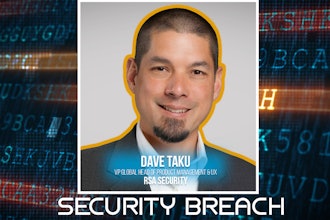
Prior to the pandemic, the distribution industry was struggling to keep and retain top talent. Many companies did not see value in the warehouse and limited efforts were made to lead, teach, coach and develop leaders from within. If you were the best forklift driver you were promoted to supervisor. Then you were handed a clipboard and a set of efficiency goals and sent off without any leadership training. Often you failed or, at the very least, made many avoidable errors.
In the early 2000’s, the concept of measuring employee engagement became more common. Companies learned that organizations whose employees were engaged were more efficient and profitable. Engagement surveys were given to all levels in the company. These surveys showed the level of engagement of those employees and a score was given. Ideally, leadership would have taken those results and worked to fix the issues that caused low engagement. Instead, in many cases, leadership tried to figure out how to teach employees to answer the questions, so the score would go up the next time the survey was given. In short, they were not trying to fix the underlying issue of poor engagement and were more concerned about and incentivized to raise the score. Chasing a number is easy, changing a culture is not!
So why is creating and maintaining an employee-centric culture and teamwork-driven so important in distribution? The industry is very social, and labor-driven. Distribution centers work around the clock performing a variety of functions to serve customers. A company culture where managers value and respect team members is important. If individual team members do not value and respect each other, chaos and inefficiency will ensue. Silos form between departments, shifts and functions. Working in this kind of environment is stifling and mentally exhausting. Why do some companies succeed and others fail?
When Dirk Beverage, founder of UnleashWD, crossed the country in the 1st “We Supply America Tour,” he saw many instances of small family-owned distributors that truly cared for their employees and customers. These employees were engaged and loyal. It was common to see several family members spanning multiple generations. When asked why he thought this was so, Dirk said the following: “There is something different about the cultures of these businesses. In each of these independent, family-owned business I visited, what really stood out was that the employees were not just a number. I heard that from the employees themselves at each visit. There is a dignified respect — where every job has dignity and every person is respected not just for what they can produce, but for who they are as a person.”
Where to start? Creating a company culture where people want to work starts at the top, as culture is driven top-down. Owners and senior leaders must live and promote the culture. Top leaders must construct incentive-based goals and objectives that promote behaviors that foster a positive culture. Furthermore, these goals must promote and incentivize teamwork and cooperation between departments and shifts. The most visible and impactful position for front-line workers' day to day work life is the supervisor. One bad supervisor can be detrimental to a department or building. Engagement comes down to one simple thing: respect. Respect must run up and down the chain of command freely. Seeking input and buy-in from front line is not only smart, but it is the right thing to do to build that inclusive and respectful culture.
I recently spoke with Brendan Breen, President of the Industrial Supply Association (ISA), who said, “In a labor market as challenged as this, the companies that honor their people are going to win the hiring battle and ultimately succeed. Regardless of the role, you hope every employee will care as much or more about your customers as you do. Taking care of your people leads to your customers being taken care of.”
What can companies do?
- Start with a great culture that values people. Simply providing lip service will not work; people can see right through someone who is insincere.
- Develop a process to train leaders how to lead people, not just get tasks accomplished.
- Be mindful to create goals and objectives that promote the behaviors to support the culture you want.
- Reward publicly those who live the culture. Create individual career paths for your employees and give leaders the time they need to develop them.
- Hire and promote people that value and live your culture. That last one is much easier said than done but it is exactly where Infor can help.
 Will Quinn
Will Quinn























